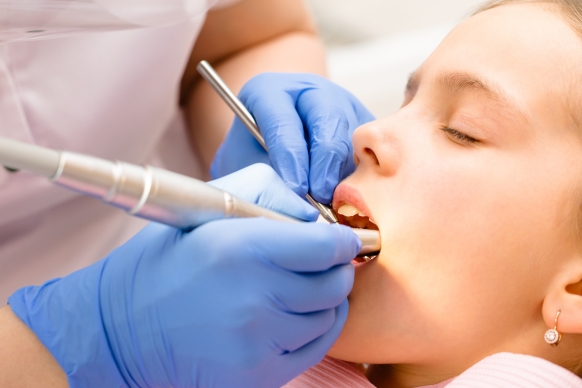
Dental Exam
What is a dental exam?
Your dental exam is a comprehensive evaluation of your teeth and gums conducted during a routine checkup. When you visit the dentist, the process typically consists of three main components:
- Dental Cleaning: This step aims to eliminate the buildup of plaque, a sticky bacterial film coating the teeth.
- X-rays: Depending on the condition of your teeth, X-rays may be taken during specific visits to provide a detailed view.
- Dental Exam: A thorough examination of your teeth and oral cavity by a dentist is a crucial part of the checkup.
Dental exams are essential for maintaining your oral health, addressing the well-being of your teeth, gums, and the supporting muscles and bones necessary for functions like smiling, speaking, and chewing. Common oral health issues, such as tooth decay (cavities) and gum disease (periodontal disease), can lead to pain, infections, and tooth loss.
It’s important to recognize that poor oral health can have broader implications for general health. For example, tooth loss may disrupt eating and nutrition, potentially contributing to other health complications. Regular dental visits and consistent toothbrushing and flossing practices at home are effective measures for preventing oral health problems.
During a dental checkup, both a dentist and a dental hygienist typically play roles. The dentist, with specialized training, addresses the care of teeth and gums, while the dental hygienist, a healthcare professional specializing in teeth cleaning, educates patients on maintaining optimal oral hygiene.
Dentists have the expertise to treat individuals of all age groups, and some practitioners undergo additional training, like pediatric dentists focusing on dental care for children.
Synonymous terms for a dental checkup include oral exam, oral hygiene, dental hygiene, and dental prophylaxis.
What is the purpose of a dental exam?
Dental examinations serve multiple purposes, including:
- Tooth Cleaning: The primary purpose is to prevent tooth decay, gum disease, and other oral health issues by removing plaque effectively. This process helps in maintaining overall oral hygiene.
- Early Problem Detection: Dental exams are crucial for identifying dental issues at an early stage. Detecting problems early makes them more manageable and treatable, potentially preventing more severe complications.
- Educational Support: Dental examinations contribute to educating individuals on the most effective methods for maintaining optimal oral health. Dentists and dental hygienists often provide guidance on proper toothbrushing techniques, flossing practices, and other aspects of oral care to empower individuals to take proactive measures to preserve their oral health.
Why do I need a dental exam?
Visit Dr. Manju Kejriwal, your trustworthy dentist in Cincinnati, OH, to find out how often you should have dental checkups. Usually, both adults and kids should get regular dental checkups every six months. But, you might need more frequent checkups if:
- You have gum disease.
- You often get cavities.
- Your family has a history of dental issues.
- You have health conditions like diabetes, heart disease, HIV, immune system problems, or take medicines causing dry mouth.
- You smoke.
- You’re pregnant, which increases the risk of gum disease.
If you notice signs like swollen, dark red, or bleeding gums, tooth pain, or other mouth problems, it’s best to contact your dentist right away, instead of waiting for your regular appointment.
For babies, their first dental visit should happen within six months of their first tooth coming in or by their first birthday. Parents should ask about how often their babies should have dental checkups, usually every six months.
What happens during a dental exam?
In a regular dental check-up, a hygienist will clean your teeth, and then the dentist will check your mouth. Sometimes, they might take x-rays before the check-up.
X-rays can show cavities, gum disease, and other issues that can’t be seen just by looking in your mouth. Ask your dentist how often you should get X-rays.
For the cleaning part:
- Scaling: The hygienist removes tartar and plaque from your teeth with small metal tools. Plaque is a bacterial film that forms on your teeth after eating. Brushing and flossing help, but scaling gets rid of any leftover plaque, preventing cavities and damage to your teeth and gums.
- Tartar Removal: Tartar is a hard substance that builds up if plaque isn’t removed. It can cause red, swollen gums (gingivitis) and, if not treated, lead to serious gum infections and even tooth loss. Professional scaling is necessary to remove tartar and keep your gums healthy.
- Polishing: The hygienist will use a tool like an electric toothbrush with a rubber tip and a slightly gritty paste to clean and polish your teeth.
- Flossing: Your hygienist will floss your teeth, and if needed, may apply fluoride gel, foam, or dental sealants:
- Fluoride: Prevents tooth decay and is often given more to kids than adults.
- Sealants: Thin coatings on back teeth to stop cavities. Mainly used for kids but adults without a history of cavities can choose to get them.
Dr. Manju Kejriwal, a top Cincinnati dentist, provides advice on keeping your teeth and gums healthy. If x-rays are needed:
- Protection: A heavy apron will shield your upper body from radiation.
- Biting Down: You bite on plastic while an X-ray scanner is near your cheek.
- X-ray Capture: The hygienist leaves the room or stands behind a shield for a few seconds to capture the X-ray images.
- Repetition: This is repeated as needed to get x-rays of all your teeth for a thorough assessment.
During the dental exam
- X-ray Review: If the dentist took x-rays, they will carefully look at them to find any possible issues.
- Teeth and Gums Check: After checking the x-rays, your dentist will:
- Look at your teeth and gums to see if they are healthy.
- Check how your top and bottom teeth fit together when you bite. If there’s a problem, they might send you to an orthodontist for more evaluation and treatment.
3. Oral Cancer Check: Your dentist will also:
- Look inside your mouth, including your lips and tongue, to check for signs of oral cancer.
- Inspect your face and neck for any unusual lumps or things that don’t seem normal. This thorough check is to catch any potential oral health issues or abnormalities early on.
What do I need to do before a dental exam?
Sometimes, if you have certain health conditions, your dentist might recommend taking antibiotics before your dental check-up to prevent infection. It’s a good idea to talk to both your dentist and healthcare provider, especially if you have heart issues or problems with your immune system, to figure out if antibiotics are necessary.
Also, if you or your child feels worried about going to the dentist, it’s important to tell your dentist before the appointment. Your dentist can have a conversation with you to find ways to make the visit more comfortable and less stressful.
Is there anything risky about a dental exam?
Having a dental check-up is usually very safe. The cleaning part might feel a bit uncomfortable, but it shouldn’t be painful.
Getting dental X-rays is also considered safe because the amount of radiation is very low. But, it’s important to know that X-rays aren’t recommended if you’re pregnant unless it’s an emergency. If you’re pregnant or think you might be, it’s crucial to tell your dentist so they can take extra care and consider different options. Talking openly with your dental care provider ensures that the check-up is safe for you and your unborn child.
What happens after the dental exam?
After your dental check-up, your dentist will discuss any oral health issues they found and suggest ways to fix them. Sometimes, just doing better with brushing and flossing can help.
But if you or your child has a cavity or a more serious dental problem, you’ll likely need to schedule another appointment with the dentist for a more detailed dental exam. Dr. Manju Kejriwal will guide you on what needs to be done, which might include things like fillings, root canals, or other treatments to fix and keep your mouth healthy.
It’s also important to know that talking about lab tests, reference ranges, and understanding results doesn’t really relate to a dental check-up. If you have questions about these things, it’s better to talk to your healthcare provider or other medical professionals directly.
What else should I know about going to the dentist?
Keeping your teeth healthy for a lifetime means doing good things for your mouth and seeing the dentist regularly. Here’s what you can do to have a healthy mouth and strong teeth:
- Brush your teeth twice a day with a soft-bristled brush and toothpaste that has fluoride in it.
- Clean between your teeth regularly using dental floss, a special brush, or a plastic pick. Your dentist can show you the best way to do this.
- Get a new toothbrush every three or four months to make sure it cleans your teeth well.
- Eat a healthy diet and try not to eat too many sweets or sugary drinks. If you do have sweets, try to brush your teeth soon afterward.
- Drink water with fluoride to help your dental health.
- Don’t smoke because it can make your gums unhealthy.
If you follow these tips, you’ll be helping your teeth stay strong and your mouth stay healthy. Going to the dentist regularly and taking good care of your teeth is important for stopping problems and keeping your teeth healthy for your whole life.


